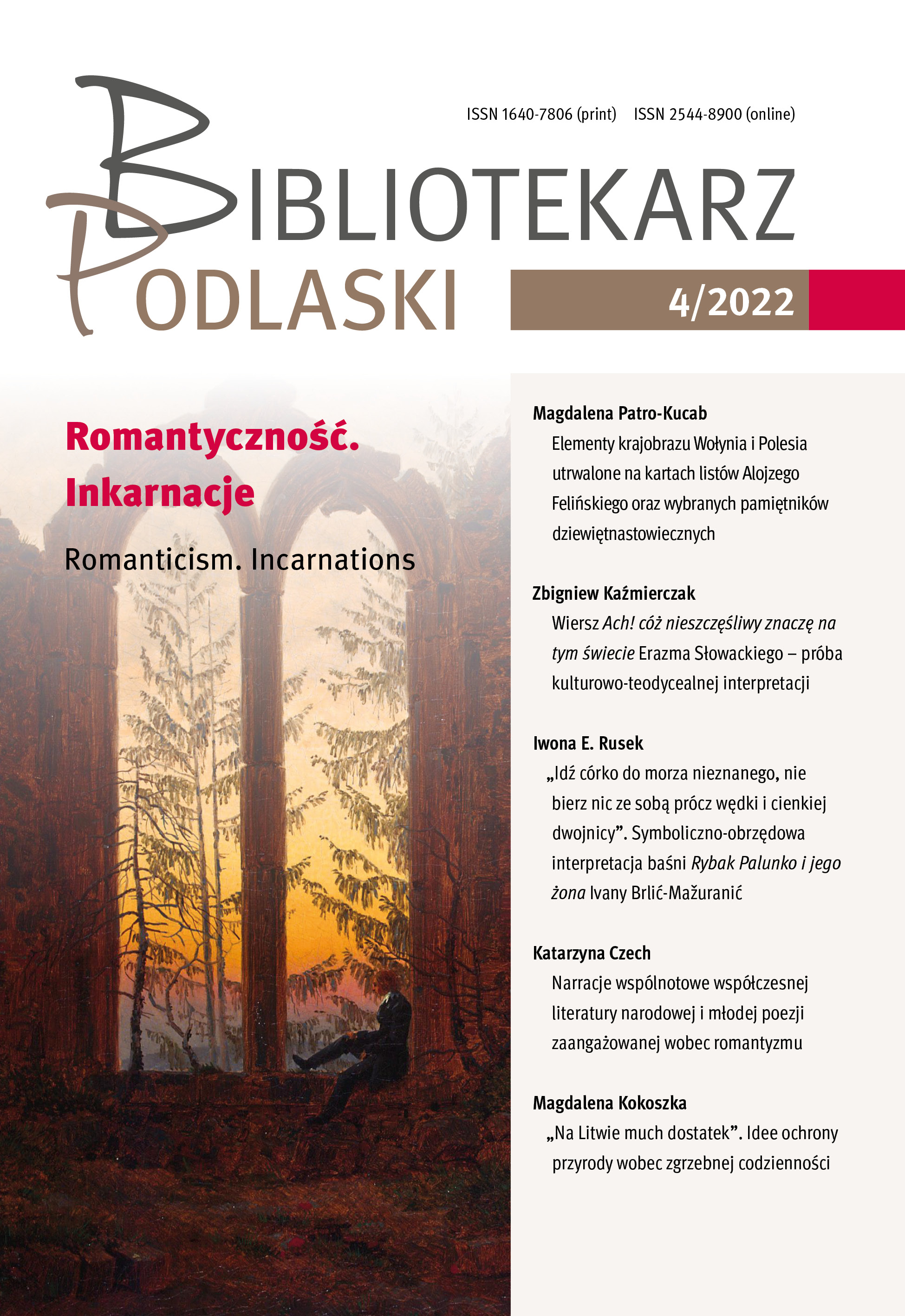Abstract
The article combines two elements in the interpretation of Erasmus Słowacki’s poem “Ah! What Poor Me in this World”: the cultural and the theodicean. Granted, not all
major theodicean concepts are included in the poem by the poet himself, and neither can they be applied to it in the act of interpretation. Theologically speaking, however, it is possible to see in the poem a theodicean concept of divine recompense for the evil suffered (an example is the recompense given to Job after the trial he was subjected to). The possibility of seeing compensation stems from the observation that his tragedy (the loss of his ten children) was too great for the poet to still be able to
write literarily complex works of a public nature about it (and the poem in question
is such a work). The fact that he writes about it, and in this way, proves that a specific mental and emotional healing process has started in him, which can perhaps be seen as a manifestation of the beginning of the process of restitution. Part of it is a reconsideration of one’s future, an increased sense of power, an attempt to contact dead children (which could prove the poet’s opening to a theistically oriented process of experiencing miracles), a belief in the existence of non-material reality (and thus, indirectly, a recognition of the possibility of meeting dead children after death).
References
Améry J., Poza winą i karą. Próba przełamania przez złamanego, tłum. R. Turczyn, Kraków 2007.
Halbfass W., Indie i Europa. Próba porozumienia na gruncie filozoficznym, tłum. M. Nowakowska, R. Piotrowski, Warszawa 2008.
Jan Paweł II, Salvifici doloris. O chrześcijańskim sensie ludzkiego cierpienia, Wrocław 2001.
Kaźmierczak Z., „Teraz tańczy przeze mnie jakiś bóg”. Projekt kultury intymnej, Białystok 2021.
Kaźmierczak Z., Jan Paweł II w labiryncie ciała, Warszawa 2014.
Kaźmierczak Z., Zdrada mnichów i inne myśli o religii, Białystok 2019.
Mistrz Eckhart, Traktaty, tłum. W. Szymona, Poznań 1987.
Montaigne M., Próby, tłum. T. Boy-Żeleński, https://wolnelektury.pl/media/book/pdf/proby.pdf [dostęp: 22.08.22].
Ruse M., Science and Spirituality: Making Room for Faith in an Age of Science, Cambridge 2010.
Słowacki E., Ach! cóż nieszczęśliwy znaczę na tym świecie, [w:] tegoż, Poezje, oprac. tekstu i red. tomu Ł. Zabielski, wprowadzenie Ł. Zabielski, W. Korotkij, J. Ławski, Białystok 2020.
Vicchio S., Theodicy in the Christian Tradition: A History, Dorrance Publishing, 2020.

This work is licensed under a Creative Commons Attribution-ShareAlike 4.0 International License.
Copyright (c) 2023 Zbigniew Kaźmierczak


